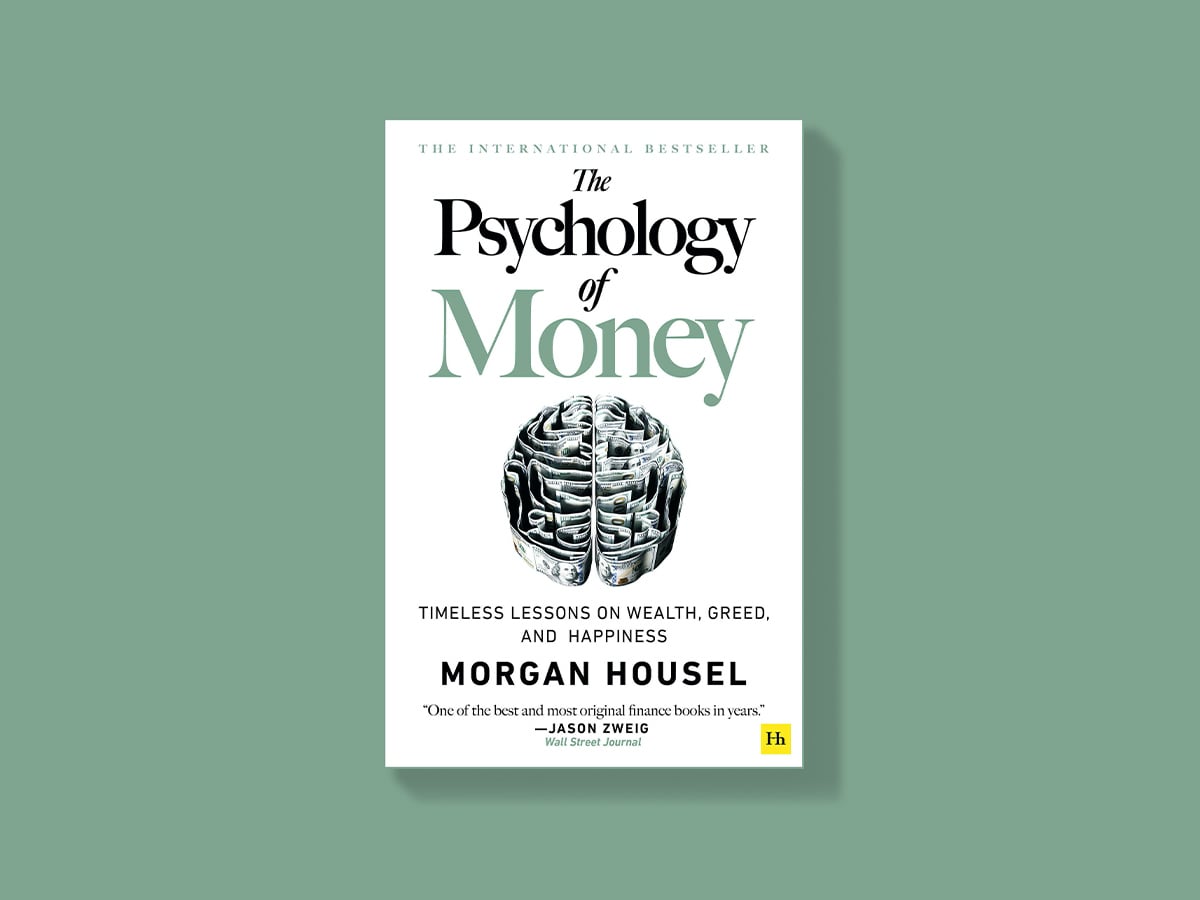Money may be made of figures, but knowing how to use it doesn’t come down to just maths. It’s how you behave with it.
Morgan Housel, a partner at The Collaborative Fund and expert of behavioural science, brings his deep understanding of how people make financial decisions to the written word in his latest book.
The Psychology of Money: Timeless Lessons on Wealth, Greed and Happiness was published by Harriman House in September, and has had such an impressive response, it is set to be adapted to film.
Talking about why he was inspired to write the book, he says, “over the course of a decade writing about investing, I came to realise that doing well with money wasn't about what you know; it was more about how you behaved, a soft skill.”
"I came to realise that doing well with money wasn't about what you know; it was more about how you behaved" - Morgan Housel
Housel had recognised that dealing with money was not intuitive and, while behaviour isn’t easy to teach, it’s a lot simpler to grasp. “I think the only way to show people how powerful behaviour is with money is through stories, so I wanted to write those stories. That's where the book came from,” he tells Opto.
One story that stands out to Housel is from the first chapter, which explores the idea that no one is crazy. “ Yes, people do crazy things with money. But those decisions make sense to them in their heads and [are] based on their view of the world that was shaped by their own life experiences. And since we all have different life experiences, what makes sense to you might not make any sense to me. Neither of us is crazy, we just see the world through a different lens,” he explains.
The following is an excerpt from The Psychology of Money, published with permission.
No one’s crazy
Let me tell you about a problem. It might make you feel better about what you do with your money, and less judgmental about what other people do with theirs.
People do some crazy things with money. But no one is crazy. Here’s the thing: People from different generations, raised by different parents who earned different incomes and held different values, in different parts of the world, born into different economies, experiencing different job markets with different incentives and different degrees of luck, learn very different lessons.
Everyone has their own unique experience with how the world works. And what you’ve experienced is more compelling than what you learn second-hand. So all of us — you, me, everyone — go through life anchored to a set of views about how money works that vary wildly from person to person. What seems crazy to you might make sense to me.
The person who grew up in poverty thinks about risk and reward in ways the child of a wealthy banker cannot fathom if he tried. The person who grew up when inflation was high experienced something the person who grew up with stable prices never had to.
The stock broker who lost everything during the Great Depression experienced something the tech worker basking in the glory of the late 1990s can’t imagine.
The Australian who hasn’t seen a recession in 30 years has experienced something no American ever has. On and on. The list of experiences is endless.
You know stuff about money that I don’t, and vice versa. You go through life with different beliefs, goals, and forecasts, than I do. That’s not because one of us is smarter than the other, or has better information. It’s because we’ve had different lives shaped by different and equally persuasive experiences.
Your personal experiences with money make up maybe 0.00000001% of what’s happened in the world, but maybe 80% of how you think the world works. So equally smart people can disagree about how and why recessions happen, how you should invest your money, what you should prioritize, how much risk you should take, and so on.
Disclaimer Past performance is not a reliable indicator of future results.
CMC Markets is an execution-only service provider. The material (whether or not it states any opinions) is for general information purposes only, and does not take into account your personal circumstances or objectives. Nothing in this material is (or should be considered to be) financial, investment or other advice on which reliance should be placed. No opinion given in the material constitutes a recommendation by CMC Markets or the author that any particular investment, security, transaction or investment strategy is suitable for any specific person.
The material has not been prepared in accordance with legal requirements designed to promote the independence of investment research. Although we are not specifically prevented from dealing before providing this material, we do not seek to take advantage of the material prior to its dissemination.
CMC Markets does not endorse or offer opinion on the trading strategies used by the author. Their trading strategies do not guarantee any return and CMC Markets shall not be held responsible for any loss that you may incur, either directly or indirectly, arising from any investment based on any information contained herein.
*Tax treatment depends on individual circumstances and can change or may differ in a jurisdiction other than the UK.
Continue reading for FREE
- Includes free newsletter updates, unsubscribe anytime. Privacy policy


